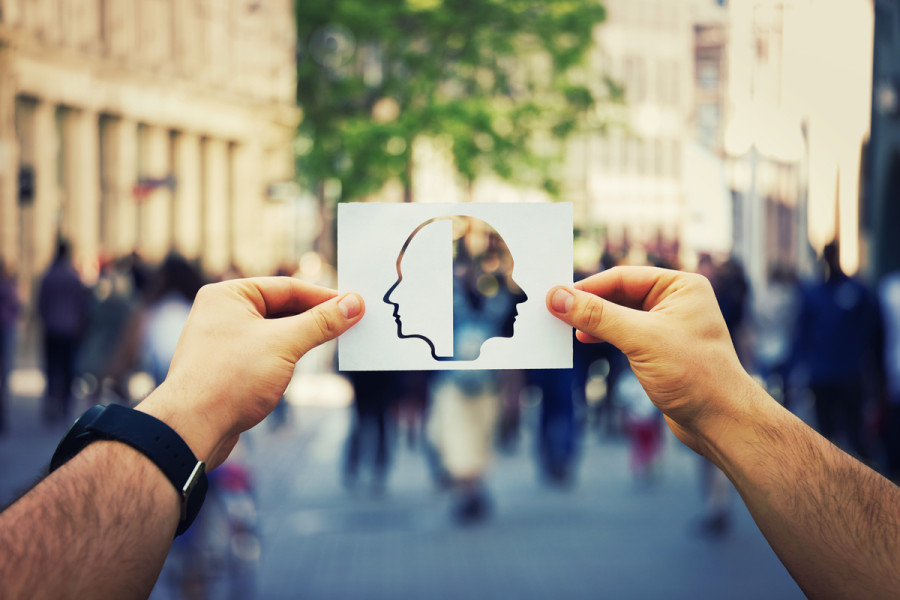Columns
Reflecting on our behaviours for positive change
For a nation that continues to believe itself to be community-oriented, Nepal is increasingly becoming individualistic.
Diva Shrestha
These are uncertain times. We are left questioning when this uncertainty will end or if life as we know it will ever go back to normal. It is natural for us to turn towards our leaders to protect us, or for leaders to provide some guidance on how to move forward. But it can also be an important time for us to turn inwards and pay attention to ourselves and understand behaviour patterns that uncover how we as a society collectively function through these testing times.
I recently overheard a family member talk about her experience with the hospital system in Nepal where she voiced her frustration about how the doctors are just trying to dupe patients and get them addicted to various medications. I have heard many of these narratives that overshadow any conversations related to progress or grey realities during these gatherings. The opinions are similar about other institutions as well: the schools are out there to get us, the shops are out there to rip us off etc. This indicates that we have very little trust in what we expect from other people and social institutions in the country. The underlying theme seems to be that everyone is out there to get us—meaning that everyone is only looking out for themselves so we need to do the same as well.
The way we have reacted to this pandemic is also a reflection of this mindset. For a nation that continues to believe that we are a family- and community-oriented society, we are increasingly becoming individualistic. There is not enough investment put into teaching about good citizenship from the two places where we expect it: educational institutions and families.
Society and education
We are a product of the society that we are part of. We learn from what we see around us. In our families, it is rare to have conversations around our emotions and mental health, taught to understand that our elders function from the conditioning that they have been raised with. Unless we make an effort to break the pattern, the rift will continue on in the form of a generation gap.
Parents look to schools as leaders in educating their children and schools put the onus on parents. There is a tendency to shift the responsibilities and point fingers when such responsibilities do not get fulfilled well. But by doing so, we are refusing to look inward and accept the realities. This shows that as a society we have failed not only on matters related to good governance, economic progress but in raising good citizens and creating a society that learns to analyse challenges, dissect problems and innovate solutions. Instead, we have passed on the attitude to disregard health care workers and ostracise front line workers in the midst of a pandemic. We are quick to invest our attention into border disputes but fail to accord the same (if not increased) urgency to empathise and rise to action to save those that are still waiting to return home during these difficult times.
Our education system, mired by its own challenges, has done little to prepare us to be ethical and moral citizens. While moral studies used to be a part of the curriculum, society has decided that the sole focus should be on outputs such as percentage and grades. This obsession with grades as a measure of success goes beyond the individual student and is also the metric by which schools are judged. The new National Examination Board curriculum decided to add ‘life skills’ as a subject to the required course list designed to ‘build internal perspective on life and develop personal values for responsible citizenship’. However, without any indication of how this would be taught, the practicality of this plan is dubious at best. Leadership development training is advertised as the cherry on top that increases the reputation of the school. But they are only taken seriously if they fit within the prescribed schedule of the institution and does not come at the cost of getting lower scores in national exams.
What can be done
The conditioning that we have been taught and brought up with can be undone and we can learn to break these behaviour patterns. It begins with looking inwards and starting from the self. When we begin to think critically, question our own behaviour to demand empathy and equity and reflect upon our value system, we can then create a system of change towards the society that would have been better equipped to deal with the current challenges.
One way to do this is to empower the education system such that the focus shifts from numerical success to moral success. Schools can relax the output driven mindset and steer the metric of success towards outcomes and increased emotional intelligence. And, most importantly, parents must take stronger ownership of building this mindset collectively to change the narrative around success and progress; the current understanding is not preferred by the employment ecosystem in the country. Young people emulate what they see. If we do not change our own behaviours and patterns, we cannot expect the next generation of citizens to bear the burden of change. This is the time for us to reflect as a society and peel away the layers of challenges. Otherwise, we will perpetuate the cycle further.
***
What do you think?
Dear reader, we’d like to hear from you. We regularly publish letters to the editor on contemporary issues or direct responses to something the Post has recently published. Please send your letters to [email protected] with "Letter to the Editor" in the subject line. Please include your name, location, and a contact address so one of our editors can reach out to you.




 9.7°C Kathmandu
9.7°C Kathmandu















